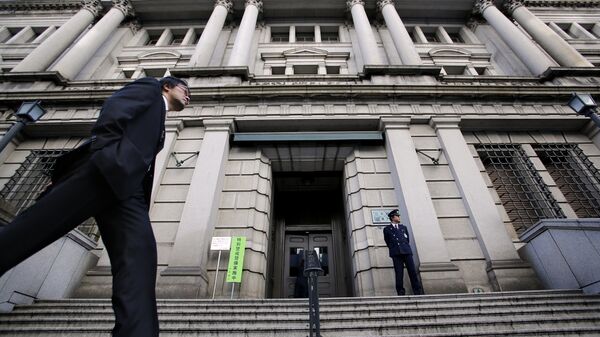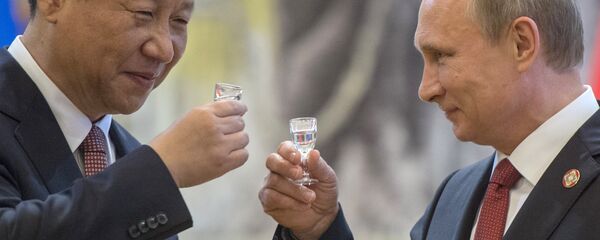Kristian Rouz — Japan's latest data on gains in consumer prices is the latest disappointment for policy hawks at the Bank of Japan (BOJ), as inflation has been too soft to support an increase in base interest rates anytime soon. Japan's households appear to have delayed spending in October, while overall economic growth was negative in the third quarter.
According to a report from the Japanese government, Japan's core inflation slowed to 1 percent year-on-year in October. This figure does not take into account unstable food prices, which gained 2.4 percent during the reporting period.
As it stands, economists do not expect the Japanese central bank to launch a decisive action wrapping up its unconventional monetary stimulus anytime soon. The BOJ's interest rates have been in the negative — at —0.1 percent — for an extended period of time.
While the negative interest rates regime (NIRP) is supportive of domestic lending, consumption, and investment, it also bears long-term risks to financial stability.
"The BOJ is unlikely to change its (policy) stance," Takeshi Minami of Norinchukin Research Institute said. "The data shows it will take quite a long time for inflation to hit the BOJ's target."
READ MORE: Tokyo Could File Lawsuit Against Nissan Over Ghosn Embezzlement — Reports
The Japanese government also observed a gradual decline in mobile phone costs and education fees have undercut the inflation data. Officials said this trend will be weighing on the inflation growth outlook for years to come.
Japan's prominent mobile carrier NTT Docomo said it would decrease charges by a whopping 40 percent in the second quarter of next year. Docomo's competitors, including KDDI and SoftBank are expected to pursue similar pricing policies to maintain their share of the market.
Governmental experts say a 40-percent decrease in telecom costs for the consumers could subtract up to 0.96 percent from inflation nationwide — which could bring Japan's inflation effectively back to zero.
Additionally, a recent decline in international oil prices is also expected to reflect negatively on Japan's consumer prices growth — as the island nation is a major energy importer.
"Falling contributions from energy and mobile charge cuts could turn core consumer inflation negative around spring next year," Junichi Makino of SMBC Nikko Securities said.
READ MORE: Global Financial Markets Dive Following US Tech Stocks Crash
Makino added inflation could hit zero as soon as in the next fiscal year, which starts in April 2019.
This adds to the mounting concerns of disinflation — which had previously plagued the Japanese economy for roughly two decades in 1990s and 2000s — could make an uninvited comeback.
However, the BOJ said in its most recent economic outlook, core consumer prices index (CPI) would accelerate to 1,4 percent next fiscal year, and to 1.5 percent in the fiscal 2020-2021. Central bankers say Japan's macroeconomic fundamentals remain strong, while export-oriented manufacturing is set to gain further momentum.
Some economists agree that the Japanese inflation could eventually hit the BOJ's 2-percent target in the medium-term.
"While the drop in the CPI caused by wireless and education price cuts is not a reflection of fundamental inflation trends, it will still deliver a slowdown in observed inflation," a tea of researchers from Bank of America Merill Lynch said in a note.
However, BOJ officials said there is too much uncertainty over all the variables affecting their policy outlook. It remains unclear whether Japan would be able to start normalising its monetary policies anytime soon.





